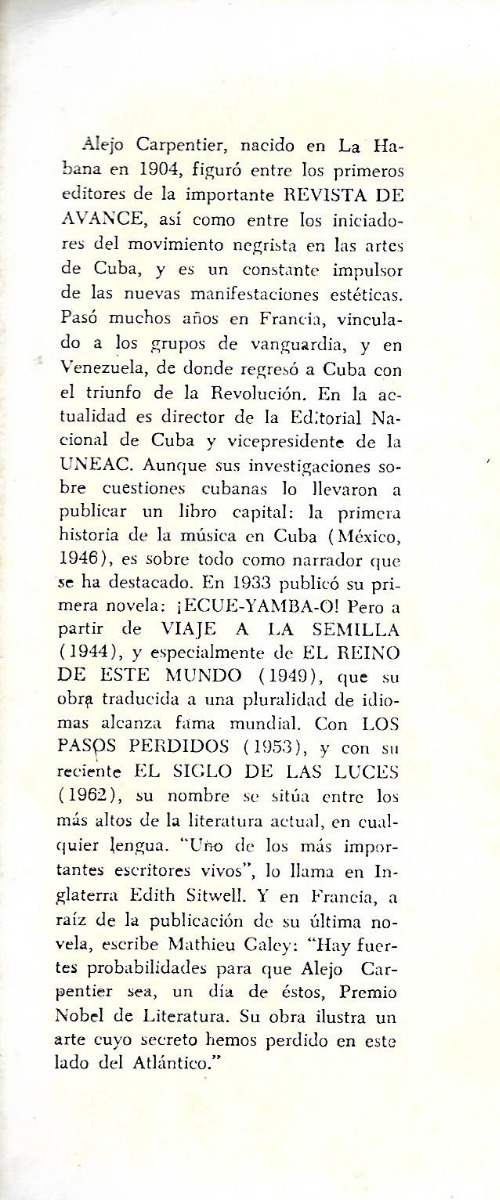
The protagonist progresses from the contemporary metropolital city to what are essentially farmlands, then to a primitive village, and finally to encampments where people live in an almost stone-age elementalism. This journey also includes a historical element – and one which involves travelling backwards in time (a favourite trope of Carpentier’s). His journey then takes him through what is a geographic composite of South America, initially across the Andes mountains, then into the great plains, and finally into the most impenetrable parts of the jungle.

He then moves to Latin-America – at first to what appears to be Caracas in Venezuela. The protagonist works as a musical composer in conjunction with film studios, and characters later circulate in ‘Central Park’. It is never named as such, but in the early chapters Carpentier satirises a cultural Bohemia which is reminiscent of Greenwich Village.

The novel begins in what seems to be New York City. The novel appeared in English translation (by Harriet de Onis) in 1956, published by Victor Gollancz in London. It was written whilst Alejo Carpentier was living in Caracas, Venezuela, an exile from his native Cuba which at that time was under the dictator Batista. The Lost Steps was first published as Los pasos perdidos in Mexico in 1953. Novel imaginary textuality representation myth Latin America.Tutorial, commentary, study resources, and web links For that reason we see to converge textualidad, myth and history, which locates us at different moments from an real-imaginary world, which it constitutes a way as well to see and to project us, with thematic variants of heterogenous connections, where the identity is a multiple and dynamic reality, beyond geography Therefore, this work shows us how to the resource of the character allows to show the deconstruction of the cultural identity of the American man.

In a simil of Carpentier’s novel, we can say that its keys of analysis and interpretation equally operates on a course. Centrally, we see in this book a textual imaginary grounded in its representative capacity as literary sign, where the indications or marks of their significant process, refer a world in which the physical trip finds its transposition in the time and the myth, extended to a defined geographic space, that is to say, Latin America. In this work, our interest is oriented to a zone of problems, generated about ‘Los pasos perdidos’ reading, novel that Alejo Carpentier published in 1953, a literary work from whose importance and vigence emerges diverse differents interpretations. Texto e identidad en Los pasos perdidos de Alejo Carpentier.


 0 kommentar(er)
0 kommentar(er)
